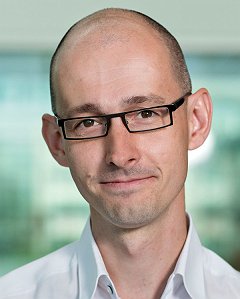How I lost my faith (in language technology research)? There and back again.
Modeling and language engineering have hardly ever been as successful as today. Whatever software domain you zoom into, you will find plenty external and internal modeling languages. Everybody is doing (multi-)modeling all the time. At the same time modeling has never been as invisible as it is today. Modeling is not a buzzword. Being a modeling-expert means not much, when everybody is a modeling expert.
In this talk, I will zoom in into two groups of modeling languages: reactive programming languages including behavior trees and state machines (as used in robotics) and probabilistic programming languages (as used in data science). While looking at these examples closely, I want to answer three questions: Concretely how and by whom are these modeling languages engineered? Why and how should people be taught language engineering in 2023? And, finally, how can one be a modeling researcher in 2023?
MSc Eng from Warsaw University of Technology (2000) PhD from IT University of Copenhagen (2005)
Interested in developing repeatable software engineering methods, supported by innovative tools and technology, to solve domain specific problems (safety critical systems, industry automation, robotics, legacy systems, and personal data protection).
Fri 21 JulDisplayed time zone: London change
09:00 - 10:30 | STAF Keynote / ECMFA Session 5TAP Research Papers / ECMFA Technical Track / ICGT Research Papers / Keynotes at Oak Chair(s): Steffen Zschaler King's College London Remote Participants: Zoom Link, YouTube Livestream | ||
09:00 90mKeynote | How I lost my faith (in language technology research)? There and back again. Keynotes Andrzej Wąsowski IT University of Copenhagen, Denmark | ||
